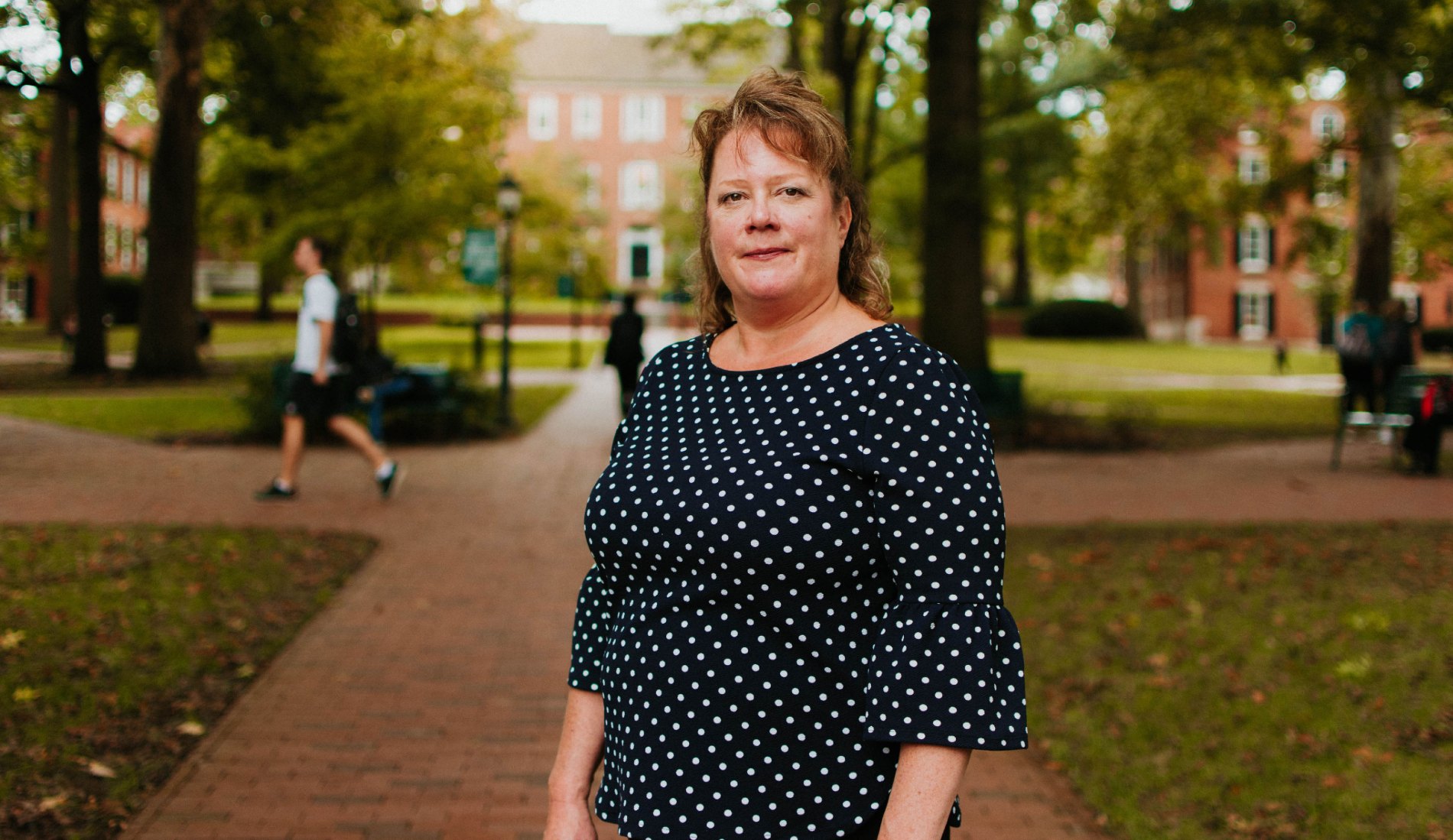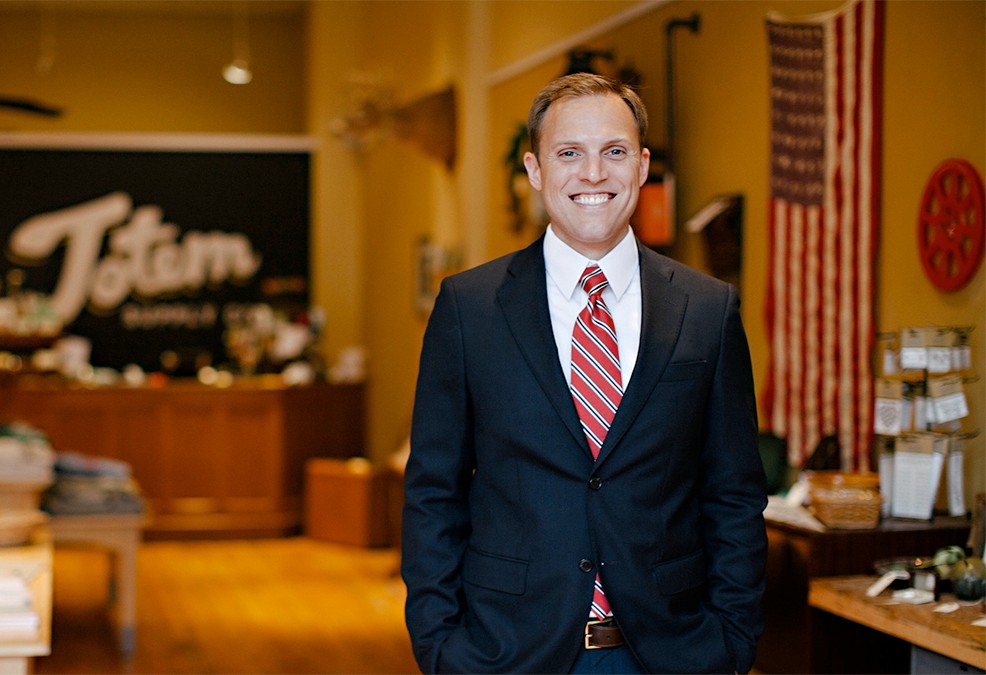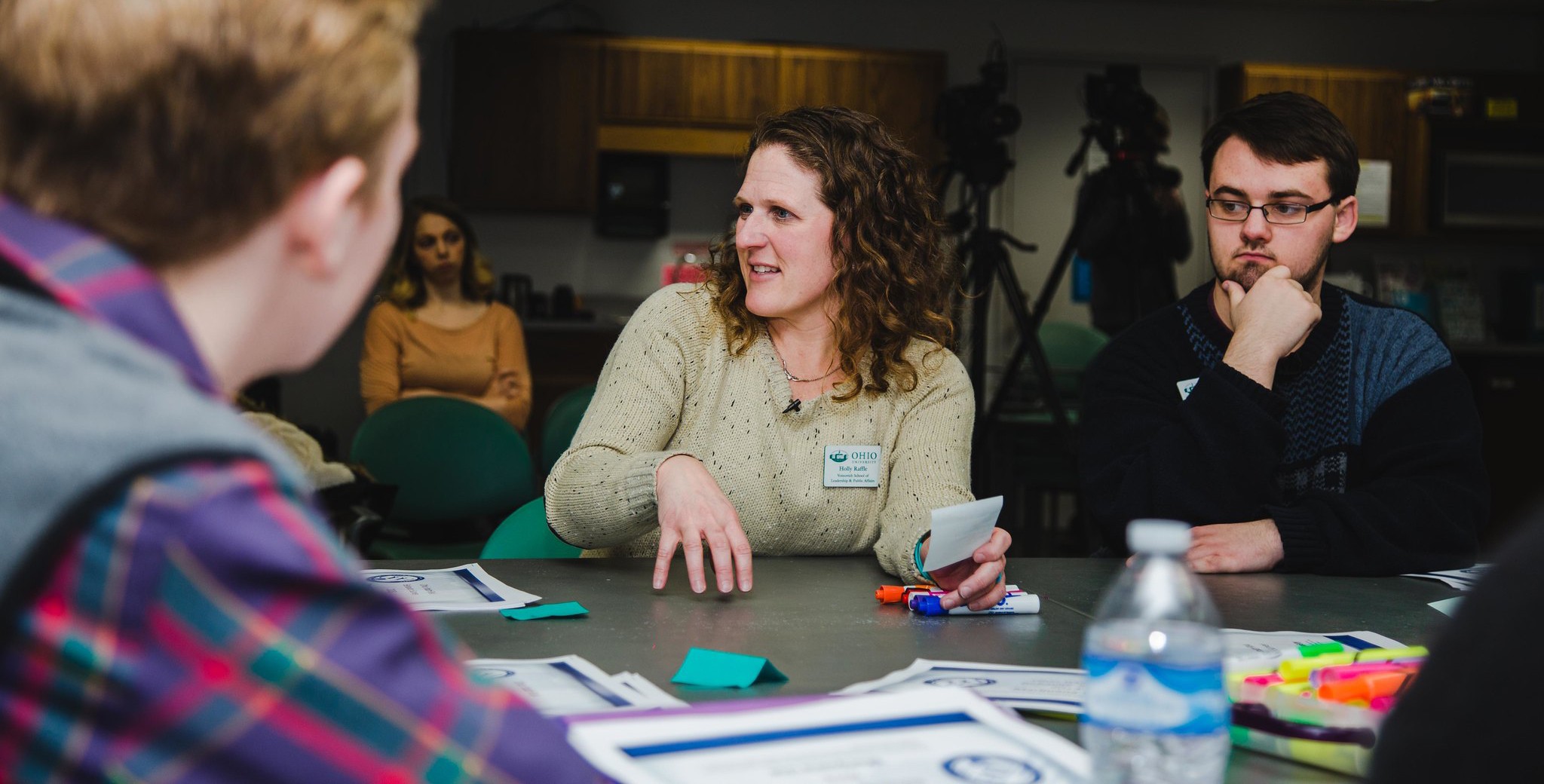“I believe the government’s highest calling is to empower people and galvanize their energy and resources to help solve our problems, meet our challenges, and seize our opportunities.”
The late Sen. George V. Voinovich’s words, which guide the mission of Ohio University’s Voinovich School of Leadership and Public Affairs, have never rung truer, as we face an enemy threatening to derail economies around the world and straining the communities we call home.
Perhaps when Sen. Voinovich gave his name to Ohio University’s public service school in 2007, it was prophetic: When the coronavirus pandemic hit Appalachia, and southeastern Ohio needed an institutional partner to join the front lines of critical economic and community recovery, the Voinovich School rose to the challenge.

“The overwhelming response
from business owners is that they
are grateful to get assistance navigating
the program information.”
—SBDC Regional Director Lissa Jollick, MBA ’13
Lighting the way
Small businesses, the economic backbone of southeastern Ohio communities, were immediately threatened in the early days of the pandemic. Where did they turn for help? Many reached out to Ohio University’s Small Business Development Center (SBDC), which saw a 500 percent spike in the number of new clients, SBDC Regional Director Lissa Jollick, MBA ’13, (ABOVE) reports.
“The overwhelming response from business owners is that they are grateful to get assistance navigating the program information,” Jollick says. “Our staff has helped owners get through the confusion, speculation, and rumors circulating by providing them with factual and definitive answers to their questions.”
That clarity can be critical during a crisis. The OHIO SBDC, part of the Voinovich School, has been a beacon, guiding clients through the complex government relief programs quickly initiated in response to the pandemic. SBDC client Angie Beck, owner of Boxer’s Bed and Biscuits in Belpre, Ohio, decided to keep her facility open to care for the pets of first responders and essential personnel.
“Without the help of Lissa Jollick with the SBDC, I’d be flying blindly through this pandemic,” Beck says. “I am always aware of important developments that affect my business before any of my colleagues who do not have their own personal SBDC expert.”
Along with the SBDC, other Voinovich School programs such as the OHIO Procurement Technical Assistance Center (PTAC), TechGROWTH Ohio, LIGHTS Regional Innovation Network and Social Enterprise Ecosystem (SEE) have stepped up to provide increased support to entrepreneurs and small businesses impacted by the pandemic response.
Some LIGHTS and SEE partners, such as Building Bridges to Careers (BB2C) in Marietta, Ohio, are making a social impact by manufacturing personal protective equipment for their communities.
“Throughout the course of this pandemic, many stories have emerged that reiterate the importance of community by highlighting individuals, organizations, and businesses that have stepped up and worked together in spite of obvious obstacles,” Jared Wittekind, BB2C Makerspace Coordinator, wrote in a recent blog post. “These stories serve not only as hope in an otherwise difficult time, but as a reminder that strong connections between innovative makers and businesses are paramount.”
Lifting local leaders
The Voinovich School has long supported southeastern Ohio communities through the Mayors’ Partnership for Progress (MPP), serving mayors and city managers in 18 counties, representing nearly 120 communities and a population of almost 800,000.

Luke Feeney, BA ’02, has been mayor of the City of Chillicothe, Ohio, since January 2016. He is an active participant in the Mayors’ Partnership for Progress, a nonprofit supported by a partnership with Ohio University’s Voinovich School of Leadership and Public Affairs that serves mayors and city managers in 18 Ohio counties. Photograph courtesy of Cassidy Dawn
As the pandemic unfolded, MPP Executive Director Amista Lipot quickly connected the group to state and federal legislators. Mayors—some representing populations as small as 300—spoke directly to Ohio Gov. Mike DeWine, Lt. Gov. Jon Husted, Auditor Keith Faber, U.S. Sens. Sherrod Brown and Rob Portman, and U.S. Congressman Bill Johnson about the devastating impacts of the pandemic to their budgets and municipalities.
“The University being really intentional about being a tool for the region makes me proud to be an alumnus. I think every mayor or city manager that participates in the partnership would agree that this is a real resource for us,” Chillicothe Mayor Luke Feeney, BA ’02, says. “I think it’s especially impressive the way the Voinovich School has stepped up right now.”
These local and state leaders must rapidly deploy unique skills in the face of this ongoing crisis. Familiar with facing powerful enemies such as the coronavirus, Col. Jay Johnson, BCJ ’86, director of the George V. Voinovich Academy for Excellence in Public Service, is leading the efforts to provide turnkey training for these public servants and leaders.
“Now more than ever, partnership and collaboration are critical components for success for those leading local governments in our region,” Johnson says. “My team has worked tirelessly to develop practical and innovative solutions as we all work to navigate change in these uncertain times.”
Johnson’s team assessed current needs, then immediately worked to enhance the Voinovich Academy website with short, weekly “Leadership Moments” and remote training opportunities, including a free series of relevant micro-sessions.
"This pandemic has created major challenges for our community and highlighted how much we rely on each other,” says Laura Black, associate professor in the Scripps College of Communication, who is leading a few of the micro-sessions. “Many of us now need to rely on technology not only for work, but also to stay connected to our colleagues and friends.”

“This is a unique confluence of events,
where we have this economic fallout
at a time when we also want people to
self-isolate, and human beings
need other people”
—Holly Raffle, MA ’95, PHD ’06.
Help that matters most
As COVID-19 continues to spread, mental health and addiction services professionals understand the uncertainty is taking a toll on people's mental health. Voinovich School Professor Holly Raffle leads the Programmatic Partnership for Community-Based Prevention, which is working with the Ohio Suicide Prevention Foundation and the Ohio Department of Mental Health and Addiction Services to help strengthen and sustain suicide prevention coalitions across the state.
“We are working with our suicide prevention coalitions to plan virtual interactions and check-ins because we’ve never seen anything like this,” says Raffle, MA ’95, PHD ’06. “This is a unique confluence of events, where we have this economic fallout at a time when we also want people to self-isolate, and human beings need other people. It’s almost like we need to look at this situation as a health crisis combined with an economic recession, which is really concerning because no one can really predict what we are going to see.”
The depth and breadth of the pandemic’s many impacts may still have yet to be seen, but the positive effect OHIO and the Voinovich School are having in the region is already apparent.
“The Voinovich School is a valuable resource for the Appalachian region, whether it’s conducting research for Governor DeWine’s H2Ohio initiative or collaborating with mayors and local leaders to address the needs in our communities,” says John Carey, AB ’81, director of the Governor’s Office of Appalachia. “Working together, we’re finding solutions for the region.”
Voinovich School Dean Mark Weinberg notes that, as the leading public service college in Ohio, the School is nationally recognized for this commitment to community-based partnerships, professional education and leadership to make a difference in the lives of citizens and communities.
“Our work and partnerships will help lead the economic and community recovery for our region and state,” Weinberg says.
Feature photographs courtesy of Ohio University’s Voinovich School of Leadership and Public Affairs


